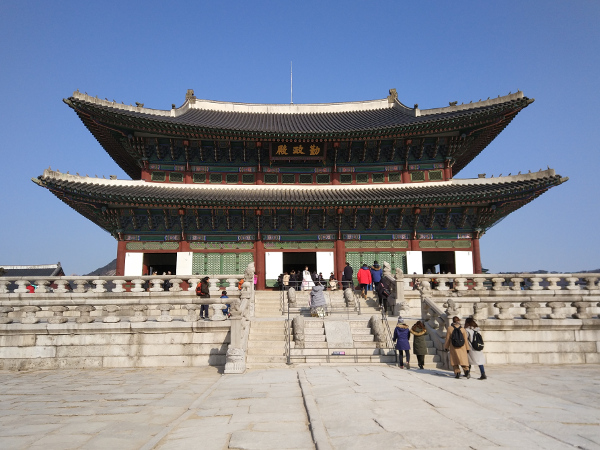Cours de coréen ᚛ Level 2 - Korean for Beginners #1 (Lessons 31 to 60) ᚛ Leçon 49 - Only, just, but [만] [밖에]
Only, just, but [만] [밖에]
The particle of restriction 만 in Korean
The particle
만 serves to express restriction, exclusion. In English, it corresponds to "only", "just", or "but". It is placed right after whatever is being restricted, in the following manner:
[Noun]만
저는 사과만 좋아해요.
→ I only like apples.
지유만 왔어.
→ Only Jiyu came.
조금만 주세요.
→ Give me just a little, please.
하루 종일 잠만 잤어.
→ All day I did nothing but sleep. (lit: All day I slept moments of sleep only.)
나는 다음 달 내내 공부만 할 거야.
→ I'm only going to study all next month.
너만 생각해. 너만 사랑해.
→ I think only of you. I love only you.
The particle 만 with other particles
En savoir +
The particle of negative restriction 밖에 in Korean
As we just saw, the particle 만 expresses restriction. However, it is only used in positive phrases.
For negative phrases, it isn't possible to use 만. Instead, the particle 밖에 is used.
The word 밖 literally means "the outside". When it is combined with 에, the expression "outside of" is obtained. In Korean, the particle 밖에 serves to set one element apart from others. In English, it might correspond to "except", "apart", "outside of", "only", etc… 밖에 is only used with verbs in negative form (or with negative verbs, as we saw in the chapter on negation in Korean).
냉장고에 달걀 두 개밖에 안 남았어요.
→ There are only two eggs left in the refrigerator. (Lit: In the refrigerator, except for two eggs, there are none left.)
파티에 세 명밖에 안 왔어요.
→ Only three people came to the party. (Lit: Apart from three people, they did not come to the party.)
민지는 공부밖에 몰라.
→ Minji doesn't pay attention to anything except studying. (Lit: Minji, apart from her studies, knows nothing.)
나는 너밖에 몰라.
→ Apart from you, I know no one.
숙제를 조금밖에 못했어요.
→ I could do nothing but a little homework.
돈을 조금밖에 못 벌었습니다.
→ I could earn nothing but a little money.
Impossibility with 수 and 밖에 in Korean
En savoir +
Unnatural use of 만
En savoir +
Exercises
En savoir +
Retrouvez deux livres numériques imprimables contenant TOUT ce que vous devez savoir pour devenir un expert de la conjugaison coréenne. Toutes les formes verbales les plus utilisées en Corée, des explications sur les nombreuses exceptions de la conjugaison coréenne, le détail de conjugaison de 500 verbes et adjectifs courants et plus de 1000 phrases concernant des situations courantes afin de bien utiliser ces verbes. Un indispensable peu importe votre niveau en coréen !
En savoir +

